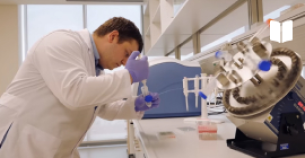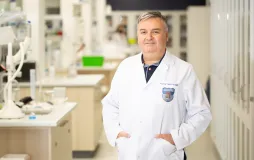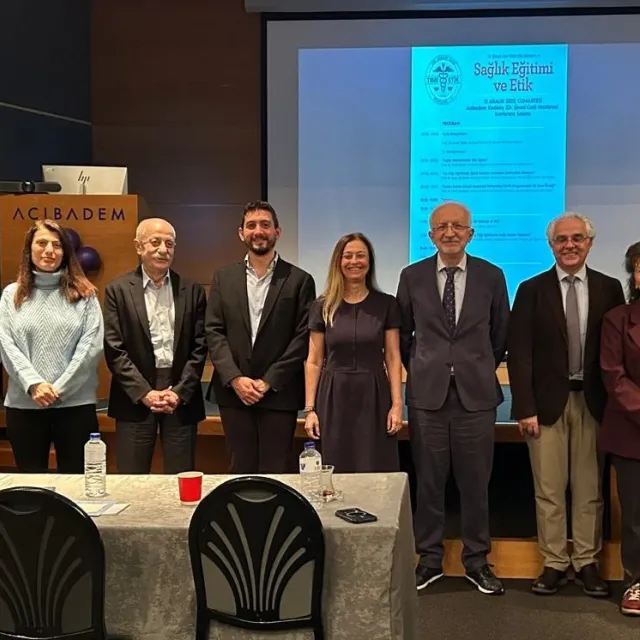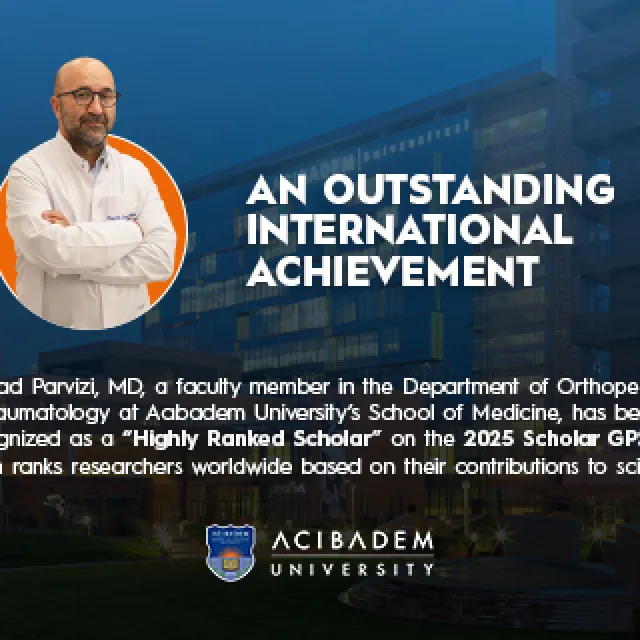Frequently searched keywords:
DNA OF "TOXOPLASMA GONDII" FOUND IN ARTERIAL PLAQUES
Haber tarihi: 11/10/2024
Last update date: 30.10.2024
The results of a scientific study seeking to answer the question, "Do microorganisms play a role in the formation of plaques that block arteries in people with atherosclerosis, commonly known as hardening of the arteries?" have astonished the scientific community. According to the research, published in the prominent scientific journal Journal of Infection and Public Health, the DNA of Toxoplasma gondii—a parasite transmitted through raw meat and cats—was discovered in the plaques that cause artery blockages. This study, conducted by Prof. Tanıl Kocagöz, Head of the Department of Medical Microbiology at Acıbadem University School of Medicine, and his team, stands out not only for its findings but also as the first large-scale study in this field.
Cardiovascular diseases are the leading cause of death worldwide, with heart attacks and strokes ranking as the top two causes of death from these conditions. However, emerging research is shedding light on numerous unanswered questions regarding the diagnosis and treatment of these diseases. One such groundbreaking study was conducted by Prof. Tanıl Kocagöz and his team at Acıbadem University. Their research suggests for the first time that Toxoplasma gondii may play a role in the formation of atheromatous plaques, which are responsible for heart attacks and strokes. This new scientific discovery could pave the way for further research in the field. Below are the details of the study, which was published in the Journal of Infection and Public Health.
Surprising Findings!
The study, which took two years to complete, was carried out by a team led by Prof. Dr. Tanıl Kocagöz and included Feyzanur Erdemir, Ahmet Karabulut, Ünal Aydın, Salih Güler, Ayşenur Çiçek, Selcen Necibe Gökduman, Ecem Eser, and Selçuk Birdoğan. Prof. Kocagöz emphasized the significance of finding Toxoplasma gondii DNA in the plaques formed in the arteries, stating, "In past research, microorganisms have been shown to play a detrimental role in many diseases. Our study was based on the question, 'Do microorganisms contribute to the formation of atheromatous plaques?"
Microorganisms as the Cause of Some Major Diseases
Citing an example from medical history, Prof. Kocagöz explained, "For years, it was believed that stomach ulcers were caused by excessive acid production, and treatment was focused solely on reducing acid levels with medications. However, Clinical Microbiologist Barry Marshall later discovered that the bacterium Helicobacter pylori was the cause of stomach ulcers. This discovery, which earned Marshall a Nobel Prize, revolutionized ulcer treatment, shifting the focus to antibiotic therapy targeting the bacterium. Inspired by this striking example, we investigated the potential role of microorganisms in the formation of atheromatous plaques. After analyzing the DNA sequences within these plaques, and eliminating human DNA, we discovered Toxoplasma gondii DNA. The reason this has gone unnoticed until now may be that this organism cannot be easily cultured in laboratory conditions."
A Silent Intruder That Can Remain in the Body for Years
Toxoplasma gondii is a parasite that can easily enter the human body and cause infections. It is commonly transmitted worldwide through contact with cat feces, consumption of raw or undercooked meat, shellfish, or even by touching raw meat with bare hands. What makes it particularly dangerous is its ability to remain in the body for years without showing any symptoms. Prof. Kocagöz noted that when contracted during the first trimester of pregnancy, Toxoplasma gondii can cause serious anomalies in the fetus. He also explained that in individuals with healthy immune systems, the infection is often asymptomatic. However, in patients with weakened immune systems, such as those undergoing chemotherapy or suffering from AIDS, the parasite can cause severe infections in organs such as the eyes and brain.
Parasites Can Easily Attach to Damaged Arterial Surfaces
Regarding the role of Toxoplasma gondii in plaque formation, Prof. Kocagöz provided further insights: "In atherosclerosis, the inner lining of the arteries becomes damaged. Plaque formation is generally considered a chronic inflammatory condition, potentially triggered by autoimmune diseases. Atheromatous plaques are known to contain cholesterol deposits, cellular waste products, and calcium salts. However, parasites can more easily attach to the damaged and rough surfaces of arteries, where they begin to multiply. This chronic inflammation and ongoing damage-repair process eventually leads to the formation of a structure called an atheromatous plaque, which gradually blocks the arteries. Previously, it was believed that these plaques were solely caused by factors unrelated to microorganisms. But the discovery of Toxoplasma gondii DNA in our study led us to consider, for the first time, that a microorganism might play a role in plaque formation."
Further Research Will Investigate the Presence of Live Toxoplasma
Parasites Building on this discovery, Prof. Kocagöz announced that further research would follow. "Our study has strongly indicated that a microorganism may proliferate within the plaques. We believe this discovery could be a significant step toward combating diseases related to atherosclerosis. We are continuing our research to gather more evidence. In our next study, we will attempt to cultivate Toxoplasma gondii and confirm the presence of live parasites within the plaques. The DNA we discovered is just the first step, a scientific foundation for a series of future studies," he explained.
Heart Attacks and Strokes Are Leading Causes of Death
Atherosclerosis, marked by plaque buildup in the arteries, leads to artery blockages and reduced blood flow, causing damage and, in severe cases, death to affected organs. The two most dangerous conditions resulting from atherosclerosis are heart attacks and strokes. According to the World Health Organization, more than 18 million people die from heart attacks worldwide each year, while in Turkey, this number reaches approximately 300,000 annually. Stroke figures are also alarming, with more than 20 million strokes occurring globally each year, resulting in 8 million deaths. In Turkey, the annual death toll from strokes is approximately 50,000.







